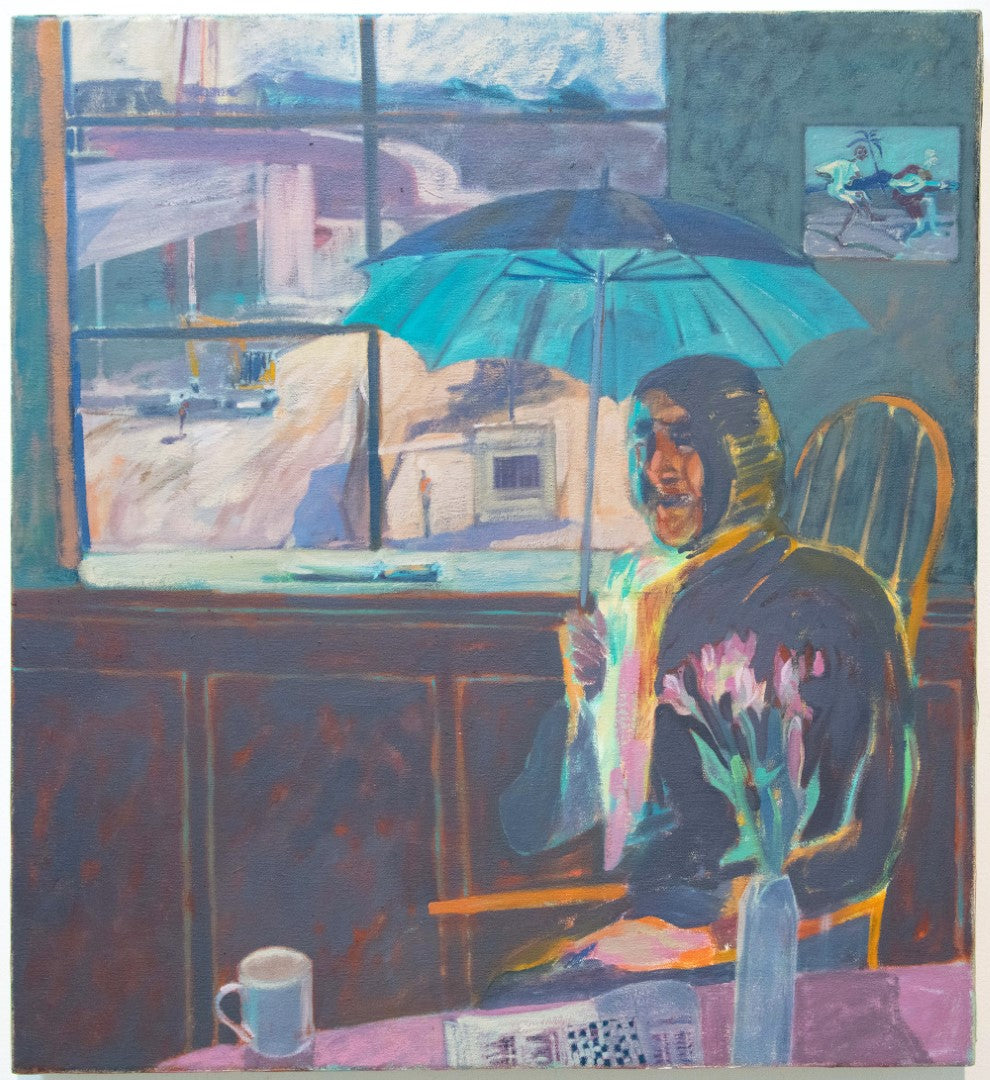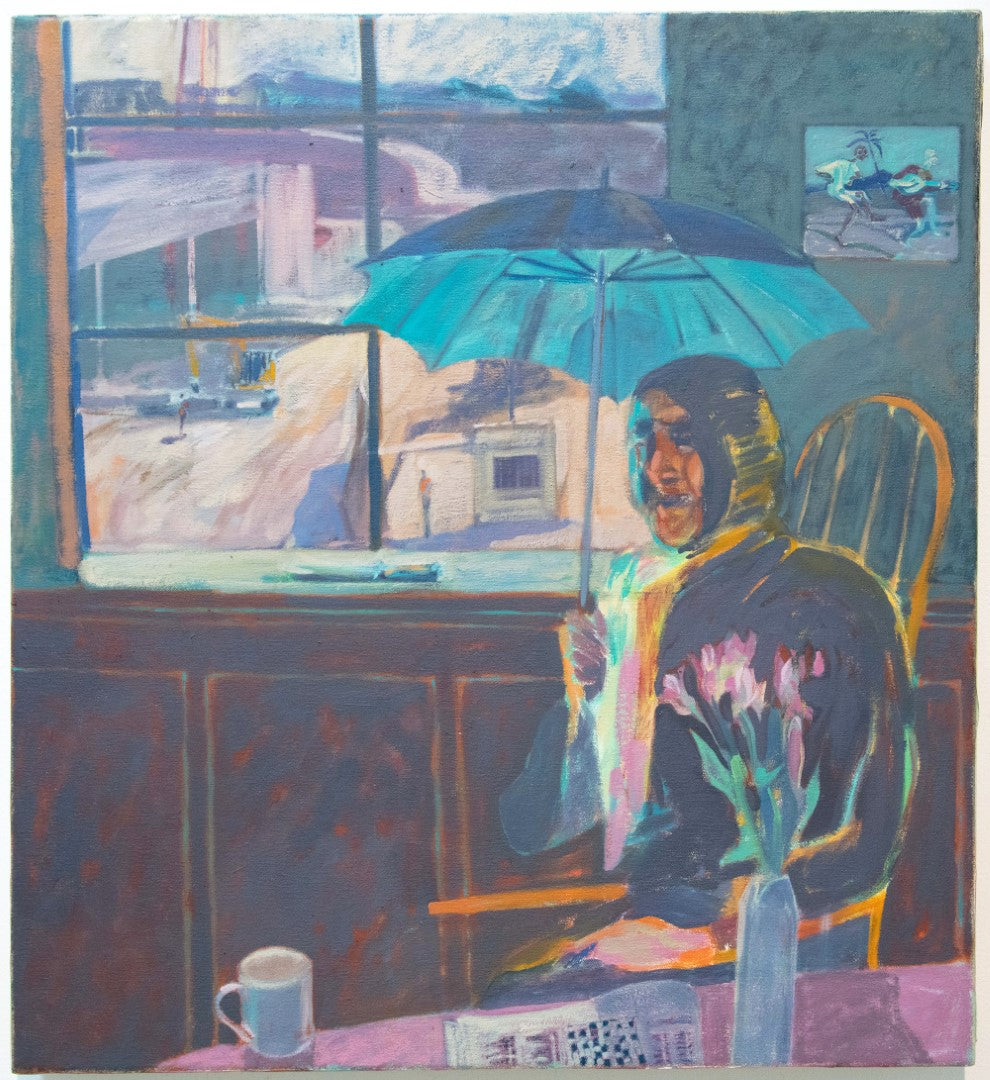Boisdale Art
Danny Leyland
Couldn't load pickup availability
To arrange shipping please contact us at info@boisdaleart.co.uk - VAT: margin scheme – works of art
Crusoe in England
Oil on canvas
60 x 50cm
About:
Danny Leyland (b.1994) is an artist from Oxford, UK. His practice is led by painting but also encompasses drawing, printmaking and writing. Since graduating from the Edinburgh College of Art in 2016 (BA in Painting), Leyland has exhibited internationally, in Australia, India, South Korea, and the UK, with highlights including RSA New Contemporaries (2017), a solo presentation with Arusha Gallery (2020), Edinburgh Art Festival (2021), and Art Busan (2024). Leyland has been a two-time awardee of the Elizabeth Greenshields Grant (2021, 2023).
In this painting we see Robinson Crusoe sitting in a room, having returned from his forty-year-stint of marooned isolation. He is as I imagine him - or, rather, as Elizabeth Bishop imagines him in her famous poem from which I borrowed the title for this piece - the very picture of absorbed recollection, surrounded by the objects from his travels, including the goatskin clothes, the umbrella, the hand-made knife which, in Bishop’s words, reeks of meaning ‘like a crucifix’. I made this painting in the tradition of other paintings of studious figures in interiors, figures often afflicted by invasive demons (or the less visual but no less terrifying invasive thoughts), such as Albrecht Durer’s St Jerome. In my take on the tradition, I wanted to dissolve the figure into and amongst the material world of things in which he is sitting, so that it is a painting that is more “object-oriented” than oriented towards the character of Crusoe himself.
It is the “quietness” of commonplace dramas that interests me, for I admire paintings that are “slow,” which both invite and reward a deep and sustained inquiry by the viewer. There is an immense power in a certain restraint, a tremendous impact created by the tension of what remains unsaid. The objects in Bishop’s poems, like the knife in Crusoe, or the wasp’s nest petrified as hard as white stucco in Santarem, are not bound up with certain prescribed forms of meaning, instead, they begin to quietly accrue a feeling or aura, and this gradual, unspoken process seems to me to occur within the images towards which I am repeatedly drawn when I am in the studio.


